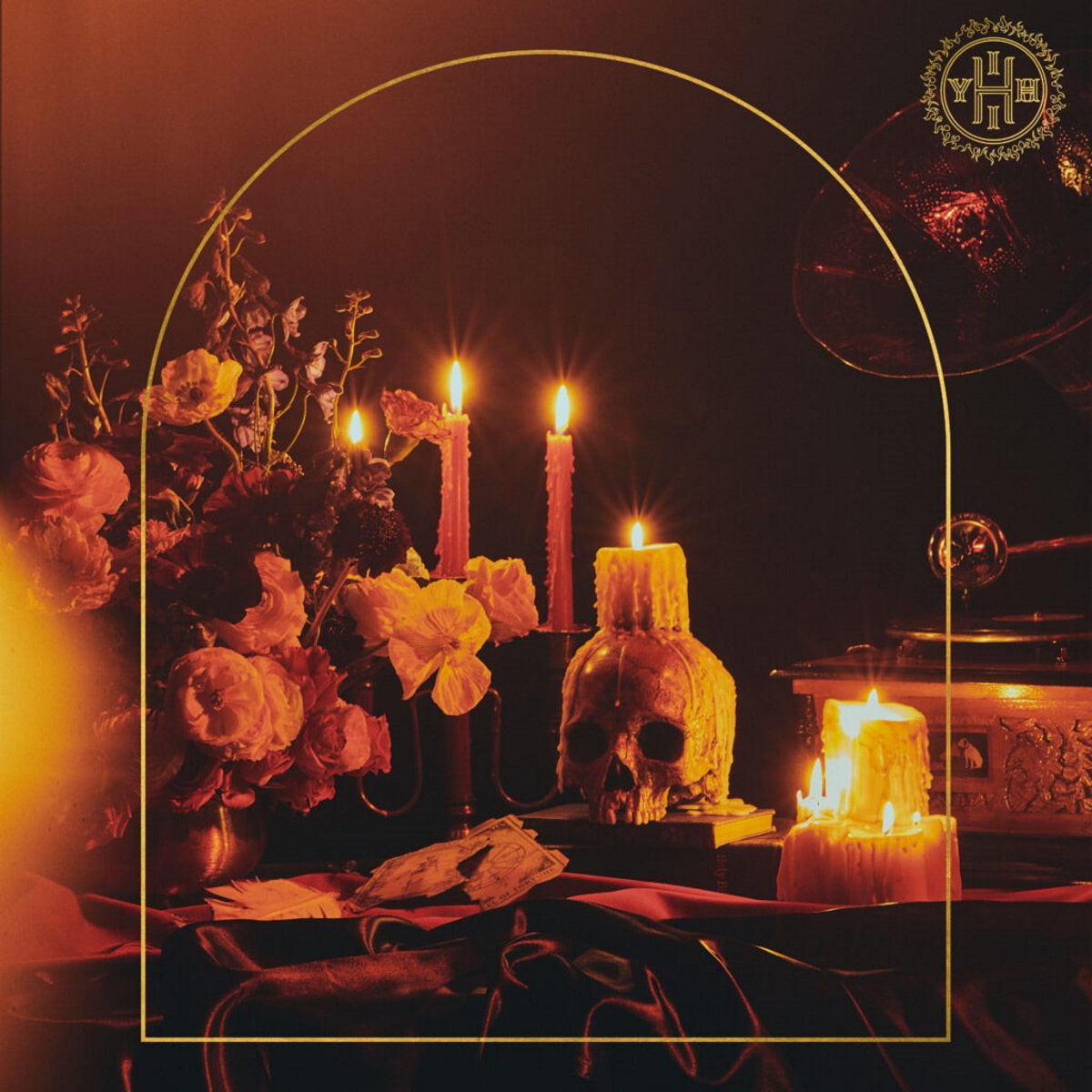SENSES FAIL have today announced their highly anticipated eighth album “Hell Is In Your Head”. The album is set for release 15th July 2022 via Pure Noise Records. Co-produced by Saosin’s Beau Burchell, ‘Hell Is In Your Head’ marks the band’s first studio album since 2018’s “If There Is Light, It Will Find You”. The announcement is accompanied by the release of their brand new single “I’m Sorry I’m Leaving” which sees vocalist Buddy Nielsen confronting his anxieties around being a career musician and the constant struggle to create a good work/life balance and being a father.
With the wider album’s themes, Nielsen explores the more philosophical and abstract nature of death, mortality and pulls inspiration form works such as TS Eliot’s “The Waste Land” and placing the album in the same world. These key elements helped form his vision for Senses Fail.
“The band has now become me and vice-versa”. He explains: “I’m trying to put myself on the map as a songwriter and as a complete musician, not just as a lyricist or the singer. This is where I had been planning to get to over the last three records. As a touring entity we are still five people, but when it comes down to the writing, it’s a solo vision as far as where I want to take it”.
Nielsen sees this album as a thematic sequel to the band’s 2006 second full-length, “Still Searching”. In fact, Nielsen deliberately began this record in the same key as “The Priest And The Matador”, the last song on “Still Searching”, to really emphasise the connection between the two.
Speaking on their new single “I’m Sorry I’m Leaving” he comments: “I wrote this song about the constant struggling with making music and art as a living. I am constantly waiting for it to all fail and disappear even 20 years into a career. At no point do I ever feel safe. After having a child, the relationship with this lifestyle became more strained. Having to leave home and lose time with your child while also hoping that what you do continues to support your family and remains fulfilling is complicated. Continuing to improve and remove my own trauma in order to be a better father is the bases and goal of the song”.
Having a kid changes you. Ask most new parents and they’ll say that when you bring a child into the world it instils in you a previously unimagined perspective on existence. Some even go so far as to say that it makes life make sense, that it gives it a purpose. For Buddy Nielsen, the sole remaining founding member of Senses Fail, it’s also made him think about his own mortality more than ever before. That started during his wife’s pregnancy, but it’s persisted ever since. As such, he’s found himself staring directly into the black abyss of his mortality a lot recently. It’s that heightened sense of his own impending doom that’s at the centre of “Hell Is In Your Head”, the band’s eighth studio album.
“My wife had a pretty serious childbirth”, he says. “I don’t want to say she almost died but it was pretty scary for a minute. And the relationship you have to have with your child is just a constant letting go of yourself in ways that you didn’t necessarily perceive you needed to. I’ve had to start to come to terms with my own death because my daughter, who’s now four, keeps asking about it. So this felt like an opportunity to maybe address grief and how we process being – how do you have a kid, how do you be alive, how do you continue to live a meaningful life while also knowing that you’re going to die?”.
It’s those questions and more that “Hell Is In Your Head” explores and attempts to answer across its 11 dark, brooding songs. It does so in two very distinct halves. Five of the first six tracks take their titles from the five parts of TS Eliot’s “The Waste Land”. They aren’t based on the 1922 poem per se, but they’re set in its world, and use that setting as a foundation to explore those topics in a more philosophical, abstract and timeless sense. Nielsen, in fact, says he views these songs: “more like a play”. That’s why the portentous, gloomy, atmospheric opener has “references to exiting and entering the wings of a stage”.
“What’s the answer to the inevitable trap of the fact that you’re going to die?”, asks Nielsen. “This record attempts to go to the dark place of ‘What is it that we’re so afraid of death?’ We’re afraid of death because of grief. Are we truly afraid of death because of death? Through my own therapy, I’ve learned you don’t even really have a clear understanding of death because it’s unknowable. And since you literally can’t die and come back, I tried to place the record in a much darker fictional place to help talk about those unanswerable questions”.
The second half of the record takes place more in the setting of the real world. Rather than pondering the philosophical nature of death, its songs are more of a real-time observation of it; tackling both the impending extinction-level threat of climate change and the contemporary political dystopia in the USA.
Needless to say, the album covers a lot of ground, and does so equally as emotionally as it does so cerebrally. Throughout, it weaves both Nielsen’s natural emotions and existential neuroses, and his philosophies as a practicing Buddhist into the very fabric of these songs. Not only are its two halves separated thematically – yet also still bound by the concept of death – Nielsen ensured that they’re also split musically. The “Waste Land” section is minor key, the second in major. The result is a musical journey that embraces the darkness of its subject matter, but then learns to let go, that indulges in plenty of existential self-reflection, but which also zooms out to paint a more widescreen picture.














